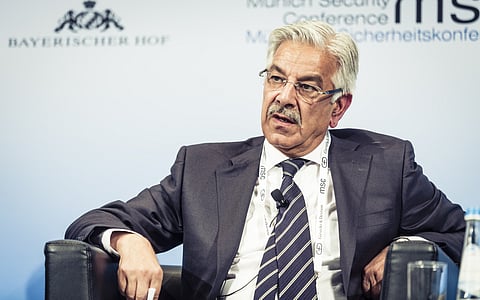

Delegations from Afghanistan and Pakistan began a second round of peace talks on Saturday in Istanbul, Turkey, following the ceasefire agreement reached earlier this month in Doha, Qatar.
According to Afghan and Pakistani media, the Istanbul talks are focused on extending the ceasefire, clarifying sovereignty issues, and addressing bilateral disputes as a continuation of the Doha process.
Pakistan’s Defense Minister Khawaja Asif told reporters that results were expected by the end of the weekend but warned that failure to reach an agreement could lead to “open war.” He added that he believes Afghanistan’s government “wants peace,” noting that both sides have so far complied with the current ceasefire, with no incidents reported in recent days.
The delegations from Kabul and Islamabad include political, diplomatic, intelligence, security, and military officials. A central issue in the discussions is the presence of the Tehrik-i-Taliban Pakistan (TTP), or Pakistani Taliban, which Islamabad accuses of using Afghan territory to launch attacks against Pakistani forces. Pakistan is seeking commitments from the Taliban-led Afghan government to prevent future cross-border attacks.
The latest crisis began after a reported Pakistani drone strike on October 9th targeting TTP leadership in Kabul, which triggered nearly two weeks of fighting before both sides agreed to a ceasefire in Doha.
Since returning to power in 2021, the Taliban government in Kabul has provided safe haven to TTP militants along the Afghan-Pakistani border, known as the Durand Line. The 2,611-kilometer frontier has been a source of contention since Pakistan’s independence in 1947, as Afghanistan has never formally recognized the British-era boundary as part of what is now Pakistan had been taken from Afghanistan in the late 18th Century following the Second Anglo-Afghan War.
Despite periodic border clashes and deep mistrust, both countries continue to maintain diplomatic relations at the ambassadorial level—an arrangement reportedly encouraged by China earlier this year to preserve open channels for negotiation.